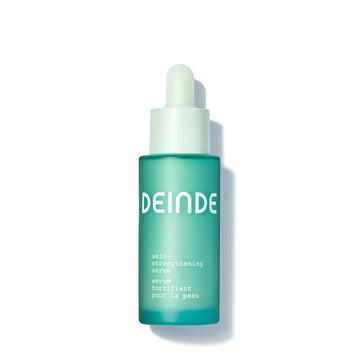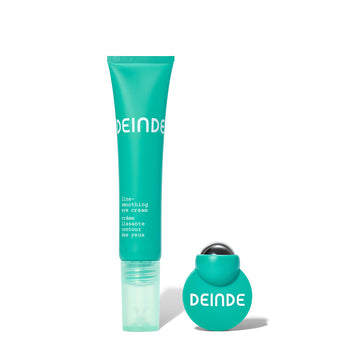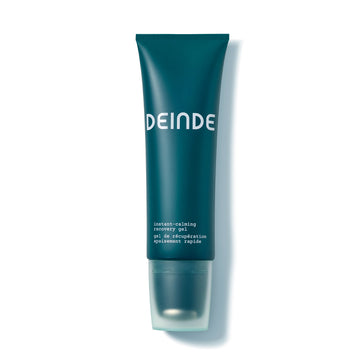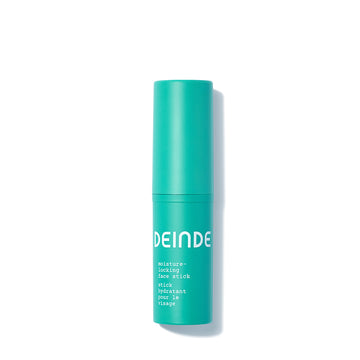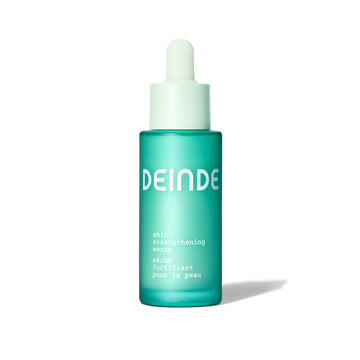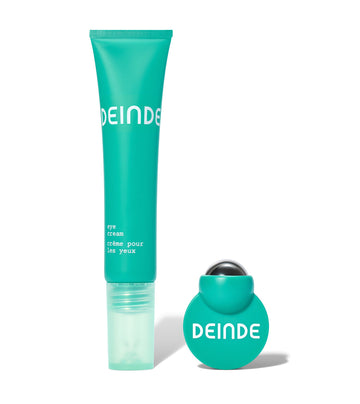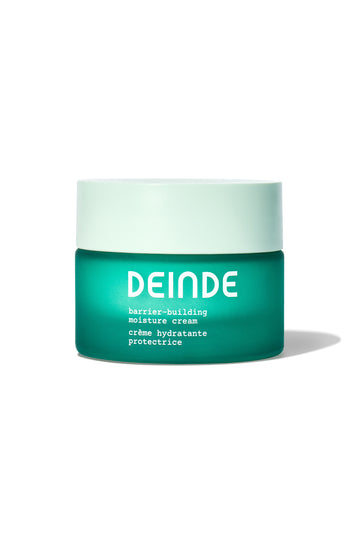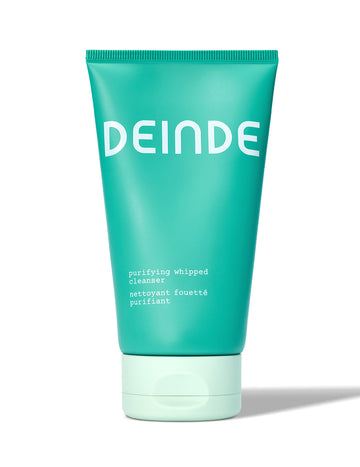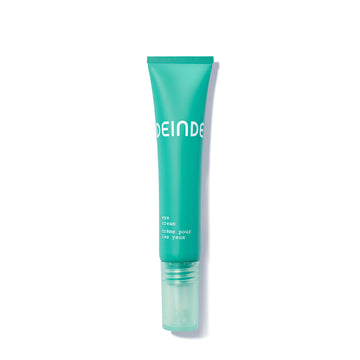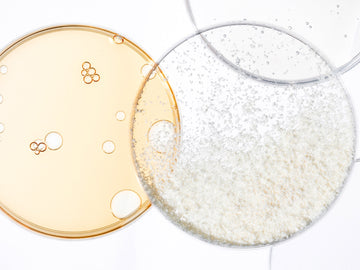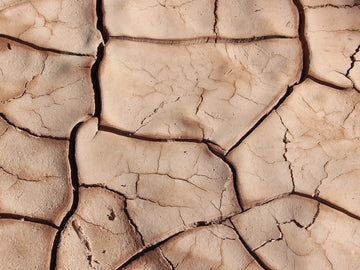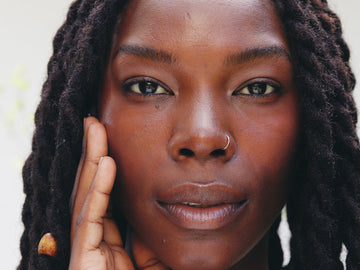
11 Keys to Skin Health, According to Dermatologists
The keys to skin health may start with your skincare routine but go far beyond your favorite serums, creams, and cleansers. If you want healthier-looking skin, dermatologists say there’s more to it than finding the most effective topical skincare products. And when things are out of balance, your skin will definitely let you know.
“The state of your skin health can be assessed by observing several signs, including skin hydration, overall texture, redness and discoloration, and presence of breakouts,” says Y. Claire Chang, M.D., a board-certified dermatologist at UnionDerm in New York.
Signs of healthy skin can include a “natural glow, hydration, even texture, and absence of redness or inflammation,” says Dr. Chang. On the flipside, we all go through phases where we experience “dryness or flaking, redness, inflammation, dull complexion, breakouts, blemishing, pigmentation, visible fine lines, and uneven texture.”
Much like your overall health, optimizing your skin health is easiest when you practice consistent, preventative habits instead of trying to reverse damage with quick fixes. Not sure where to start? We asked dermatologists for their top tips in maintaining healthy skin, from SPF reminders to the importance of getting your beauty sleep. Below, find their best advice.
1. Wear your sunscreen (every single day).
You’ve heard it over and over again, but there’s a reason dermatologists stress the importance of wearing broad-spectrum sun protection every single day.
“Wearing sunscreen protects against sun damage and prevents the breakdown of collagen and elastin, which leads to fine lines, deep wrinkles, and sagging,” says Morgan Rabach, M.D., a board-certified dermatologist at LM Medical NYC. “It also prevents premature aging, sunburn, dyspigmentation, and skin cancers.”
Dr. Chang agrees that “wearing sunscreen is the most important skincare step you can do to maintain skin health, reduce the risk of skin cancers, and prevent premature skin aging.” Even if it looks cloudy outside, the sun’s ultraviolet rays can still “cause both short-term and long-term damage,” she cautions.
Find a formula you actually enjoy wearing, and smooth it on after your moisture-locking face stick.
2. Search for skincare with antioxidants.
While topical skincare isn’t the be-all, end-all of managing your skin health, it’s one of the easiest ways to improve it. “There are numerous skincare ingredients that can address specific
concerns and provide nourishment,” says Dr. Chang.
While the right combination for you will depend on your skin type and specific concerns, keep an eye out for antioxidants, a frequent dermatologist recommendation key to inflammaging management.
“Topical antioxidants, including vitamin C, vitamin E, niacinamide, licorice root extract, and ginseng help fight oxidative damage that can happen due to sun exposure and pollution,” explains Dr. Chang. “This helps brighten the skin and boost collagen.”
Dr. Rabach also highly recommends incorporating vitamin C, a popular antioxidant “that helps repair cellular damage even out pigmentation.” At DEINDE, we’re also a big fan of antioxidants. Our hero ingredient, Naringenin, is derived from polyphenols, a type of antioxidant like those typically found in citrus peels.
3. Add retinol to your routine.
Another ingredient dermatologists love is retinol. According to Dr. Rabach, it’s “the biggest heavy hitter, which helps rebuild collagen and elastin, even out skin tone and pigmentation, clear out pores, and help with cell turnover, leading to a brighter, fresher skin.” Retinol is a “vitamin A analogue,” says Dr. Chang, who recommends it for everything from acne treatment to reducing signs of aging.
A common complaint for retinol beginners is that it can cause skin to flake or peel. Try using a less intense version or concentration of the ingredient, applying it less frequently, or pairing it with hydrating and calming ingredients.
Some soothing and hydrating ingredients Dr. Chang loves include Centella asiatica, green tea extract, aloe vera, hyaluronic acid, ceramides, and glycerin.
4. Choose the right cleanser for you.
No matter your skin type, you should be washing your face regularly, especially at the end of the day before bed. “Cleansing is a crucial step to remove dirt, excess oil, pollutants, makeup, and dead skin cells,” says Dr. Chang.
“Cleansing properly removes the build-up of harmful chemicals and pollutants, which can increase inflammation on the skin as well as accelerate skin aging.” If you have oily or acne-prone skin, a regular cleansing routine can “reduce the risk of acne,” she says. It also “allows proper absorption of your topicals,” helping them work more effectively.
While cleansing habits are important, so is choosing the right formula for you. “Dry skin should use a hydrating, gentle cleanser,” says Dr. Rabach. The same goes for sensitive skin types. If you have oily or acne-prone skin, she recommends a foaming cleanser, while Dr. Chang suggests looking for a face wash with acids like BHAs.
Our purifying whipped cleanser is a safe bet for all skin types, whether you’re dry, sensitive, oily, or breakout-prone.
5. Avoid over-exfoliating.
Exfoliating in small doses is great. Too much, and you can easily throw your skin health out of balance. “Chemical exfoliants like glycolic acid and lactic acid exfoliate the surface of the skin, improve overall texture, and give a nice glow,” says Dr. Chang. The issue occurs when you over-exfoliate and disrupt your natural barrier function, which “worsens dryness and leads to increased inflammation and irritation.”
According to Dr. Rabach, over-exfoliation can also lead to rashes “and at times pigmentation and burns.” Whether you’re using physical exfoliants like face scrubs or chemical versions, incorporate them in moderation. And if you’ve accidentally done too much, here’s how to treat over-exfoliated skin.
6. See a dermatologist preventatively.
Think of your derm like your doctor and make it a priority to see them regularly. “Starting in your teens or early 20s, a yearly skin screening is recommended for skin cancer identification and prevention,” says Dr. Rabach.
While dermatologists stress the importance of yearly skin cancer screenings, making an appointment can also help with the early detection of other skin conditions and skin diseases. “This ensures potential issues are addressed earlier, reducing the risk of complications,” says Dr. Chang.
“For example, early evaluation and treatment of acne can help reduce the risk of acne scarring in the future. Early diagnosis of conditions like psoriasis may help detect psoriatic arthritis earlier as well.”
Beyond keeping an eye out for more serious conditions, dermatologists can also help “personalize your skincare routine” and suggest in-office treatments to help maintain healthy skin, says Dr. Chang.
7. Don’t smoke.
This one’s a hard non-negotiable for maintaining your skin (and overall) health: Don’t smoke. “Smoking overall is a large oxidative stress to your system, and that stress is seen in the skin,” explains Dr. Rabach, who says the habit “restricts blood flow and depletes oxygen and antioxidants in the skin.”
Frequent smoking accelerates skin aging by “increasing the breakdown of collagen and elastin, which are proteins that give structure to the skin,” says Dr. Chang. Over time, this can manifest as the premature appearance of fine lines, wrinkles, sagging, a dull complexion, and even slower wound healing.
8. Get your beauty sleep.
There’s a reason the phrase “beauty sleep” exists: “Adequate sleep is important for skin health,” confirms Dr. Chang. “There is evidence that the repair of DNA damage from the sun and regeneration of skin cells peak at night when sleeping.”
Experts say the exact number of hours you need per night varies, but if you don’t feel rested, you’re probably not getting enough. Lack of sleep has both short-term and long-term effects on your skin.
“It can lead to increased inflammation and increased oxidation in cells, leading to oxidative damage and premature aging,” says Dr. Rabach. Dr. Chang says not getting enough rest can also worsen certain skin conditions like acne, eczema, and psoriasis.
9. Stress less (if you can).
We’ll admit, this one’s easier said than done. But when your stress spikes, so does cortisol, commonly known as the stress hormone.
“Increased cortisol levels lead to increased oil production and breakouts,” says Dr. Rabach. High cortisol levels also show up in other visible ways. “Many of us have gotten acne breakouts or a psoriasis flare when stressed,” says Dr. Chang. That’s because stress also worsens inflammation in your body and can trigger skin conditions including acne, rosacea, psoriasis, eczema, hives, and itching.
“Stress can even trigger hair loss,” says Dr. Chang. And chronic stress “has also been suggested to accelerate skin aging by worsening breakdown of collagen and elastin.”
10. Stay hydrated.
Let’s settle the great hydration debate once and for all: Drinking a glass of water won’t magically give you glowing skin. But derms say you shouldn’t overlook the importance of hydration. “Every skin cell and skin function is dependent on water,” says Dr. Rabach.
“It’s sort of like gas in the car; it keeps everything running.” That isn’t necessarily to say that the more water you drink, the better your skin will look—it’s more about hitting a certain baseline. “A better way to put it is: Preventing dehydration of the body can help with skin health,” says Dr. Chang. “Dehydration can lead to reduced circulation, dullness, and a compromised skin barrier.”
You may have heard that the water you drink doesn’t actually reach the surface of your skin. This is true, but there’s some nuance.
“While water alone does not hydrate the skin topically, avoiding dehydration can maintain overall skin health,” says Dr. Chang. “This is as important as using proper skincare.” In her practice, Dr. Rabach says she can always tell when a patient is adequately hydrated just by doing basic injections.
“I can tell by how plump the skin is and how painful the injection is because the more you dehydrate your skin, the closer the underlying nerves are,” she says.
11. Pay attention to your diet.
Keeping your diet nutrient-dense is key to glowing skin. “Diet plays a crucial role in skin health, affecting a range of skin functions including hydration, inflammation, and collagen production,” says Dr. Chang.
First, there are a few things better enjoyed in moderation. “Sugar and alcohol lead to an increased inflammatory state,” says Dr. Rabach. Dr. Chang also recommends regulating your intake of foods “high in processed carbohydrates,” which can “lead to increased insulin levels and trigger acne flares.”
A glass of wine here and there won’t hurt, but too much can also tip skin out of balance. “Alcohol is a diuretic, which can lead to dehydration and make the skin appear more dull, dry, and prone to fine lines,” she says. “Alcohol can also increase inflammation in the body, which can trigger rosacea flares, acne, and psoriasis.”
Lastly, be mindful of your salt intake. “High sodium intake can cause water retention in the body, leading to swelling and puffiness, especially in the under eyes,” she says.
What to pile on your plate? “A healthy diet rich in vitamins, antioxidants, and healthy fats will help strengthen the skin and hair, maintain skin hydration, and promote collagen production,” says Dr. Chang. Read our guide to the best foods for skin health if you need help meal prepping.
The list may seem long, but we promise it’s easy to implement. And if you happen to go a little overboard on exfoliation one day or forget to remove your makeup on a Friday night out (been there), don’t sweat it.
Just like your skincare, skin health habits show when you’re consistent about them. So stay hydrated, snooze, and slather on your antioxidants regularly to get that glow.
Sources:
Annual Exams | The Skin Cancer Foundation.
Sun-damaged Skin: Photoaging, Signs, Causes & Treatment | Cleveland Clinic
Diet and skin health: The good and the bad | PubMed
Popular Skin Care Ingredients Explained | Cleveland Clinic
Meet the Experts
Claire Chang, M.D. is a board-certified and fellowship-trained cosmetic dermatologist at UnionDerm in New York. She specializes in cutaneous laser treatments, facial and body contouring, and injectable treatments. Dr. Chang is an expert in skin of color and Asian beauty trends, and she frequently travels back and forth from Asia to bring the latest cosmetic trends to her patients. She has published numerous articles in peer-reviewed journals, written multiple dermatology book chapters, and presented her research at several national dermatology meetings. She is a member of the American Academy of Dermatology, American Society of Dermatologic Surgery, American Society for Laser Medicine and Surgery, and the Women’s Dermatologic Society. She also serves as a clinical instructor of dermatology at the Mount Sinai Medical Center.
Morgan Rabach, M.D., is a board-certified dermatologist and media expert with hundreds of opinion articles on skincare and the use of injectable cosmetic procedures. Dr. Rabach is known for her expertise in cutting-edge techniques for botox and fillers and the savvy use of skin products. Additionally, she deeply enjoys helping people eliminate acne scarring. Dr. Rabach is ranked “#1 dermatologist” in NYC by RateMDs, featured as a “Superdoctors” in NYTimes Magazine for the last five years, granted “TopDoctor” designation by Real Self and is an advisor for Gerson Lehrman Group and Guidepoint Global. In addition to her private practice, she is a Clinical Assistant professor of Dermatology at The Icahn School of Medicine at Mount Sinai Hospital. She graduated from Brown University with Honors in Biology, earned her medical degree from New York University School of Medicine, and completed her medical internship at Yale New Haven Hospital and her dermatology residency at SUNY Downstate Medical Center where she served as chief resident.
